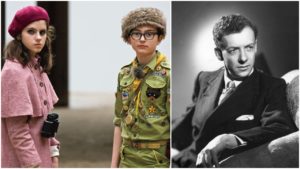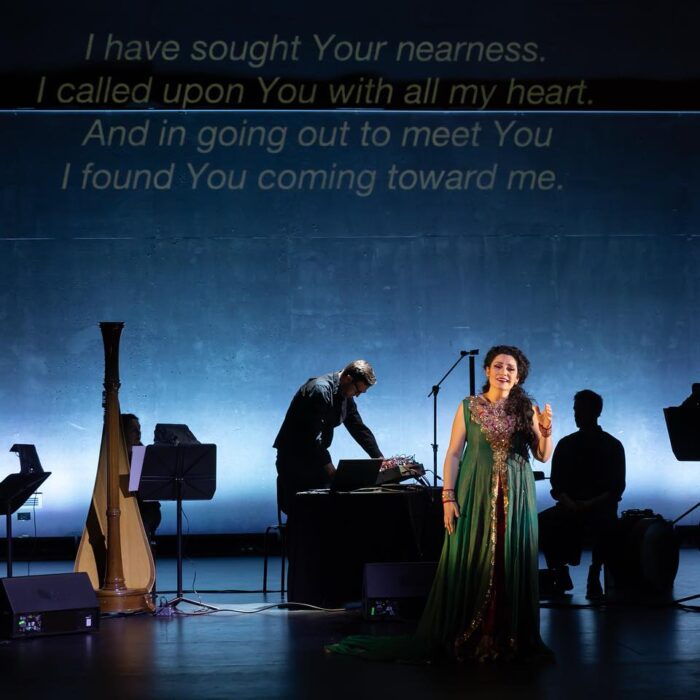
Opera Meets Film: How Britten’s Operas Emphasize The Creative Power of Children In ‘Moonrise Kingdom’
By David Salazar“Opera Meets Film” is a feature dedicated to exploring the way that opera has been employed in cinema. We will select a section or a film in its entirety, highlighting the impact that utilizing the operatic form or sections from an opera can alter our perception of a film that we are viewing. This week’s installment features Wes Anderson’s “Moonrise Kingdom.”
Wes Anderson’s “Moonrise Kingdom” is a pastiche of Benjamin Britten’s music.
From its opening moments, with Leonard Bernstein’s interpretation of Britten’s “The Young Person’s Guide to The Orchestra” to the very end, with “Cuckoo” from “Songs from ‘Friday Afternoons,’ Op. 7,” Britten’s music permeates the score.
The film, which focuses on the plight of two teenagers (Sam and Suzy) as they wrestle with a world dominated by hardened adults, leans heavily on two particular operas from Britten’s oeuvre to not only add emotional weight, but also context to scenes and relationships in the score.
Romance In The Air
Sam and Suzy’s romance is highlighted throughout the film by Britten’s “A Midsummer Night’s Dream.” An opera about lost lovers in a magical forest, that opera’s story clearly provides a contextual parallel to Sam and Suzy’s own adventure through the woods as they run away from the adult world in search of a haven where they can be together.
But the choral passage, “On The Ground, Sleep Sound (which features a children’s chorus)” aims for something far deeper. The development of the romance itself is explored through this very piece. We first hear it when the lovers are writing letters to one another. Andersen juxtaposes the ethereal beauty of the choral music, with the clumsiness of the courtship between the two. On a superficial level, it is charming and comic, but the choice of music emphasizes the true depth and beauty of the feeling between the two. It isn’t a joke for them – it’s serious.
We hear the passage again at Moonrise Kingdom where they enjoy a honeymoon of sorts. They dance, they kiss, they explore one another sexually, and they ultimately sleep together. It’s as perfect a culmination of the courtship as one could ever script.
But like the magical atmosphere that this very passage evokes, this phase of their relationship is not meant to last and once the kids are separated by adults, we don’t ever hear it again. Instead, different Songs from Friday Afternoons come to the fore in connecting their relationships, essentially bringing it into a new phase or greater intimacy.
The Flood
The second of these operas is “Noye’s Fludde,” which recounts the story of Noah’s Ark in the Old Testament. The opera first appears in a flashback with a staging of the work. “Noye, Noye, Take Thou Thy Company” is the passage that becomes the centerpiece of this scene and it emphasizes Noah’s need to bring couples of animals together onto his ark before the impending flood that will change the world.
This particular moment in the film explores the initiation of the relationship between Suzy and Sam. Like the animals that will be saved from the storm that will purge the corrupt world, this young couple of teens will also have to endure a cataclysmic storm at the film’s climax that will purge the adults around them of their selfishness and corruption.
The opera’s music makes further appearances with such passages as “The Spacious Firmament on High” and “Noye, Take Thy Wife Anone” during the climactic storm, highlighting Sam and Suzy’s willingness to sacrifice one another instead of submitting to a world of imprisonment and pain that the adults want to impose on them.
The importance of the opera’s appearance on these particular occasions is not only to add thematic correlation to the two stories, but to also emphasize the story’s own mythic qualities. Opera is a heightened artform and its abstract nature, with song depicting drama, counterpoints the film’s own sarcastic tone. As such, it adds weight to the drama, grounding the seemingly light plot in a sense of gravity and importance.
This furthers the thematic material of the film, in which adults don’t seem to take the children’s emotional challenges seriously, seeing them as benign and unimportant. Suzy and Sam are told repeatedly that their relationship will not endure. Sam is told that he has a lot to live before making such an emotional commitment and when they ask to be married, their desire to do so is shrugged off repeatedly by Cousin Ben who won’t go through with the ceremony until he sees them “talk it over” like adults would.
But ultimately, Sam and Suzy are akin to Noah as only through their own willingness to brave the storm are they able to make the adults understand the importance of their respective emotions and feelings. The music makes their plight one of great power and importance.
It shouldn’t be lost on anyone that children’s voices dominate these passages, furthering this sense that they carry the drama. Children don’t play a major part vocally in most of the operatic repertory, but Britten, in particular, wrote a number of works that sought to include amateur singers of younger ages; Britten’s inclusion thus supports Andersen’s overriding idea that children are essential creators and agents of change in the world.


